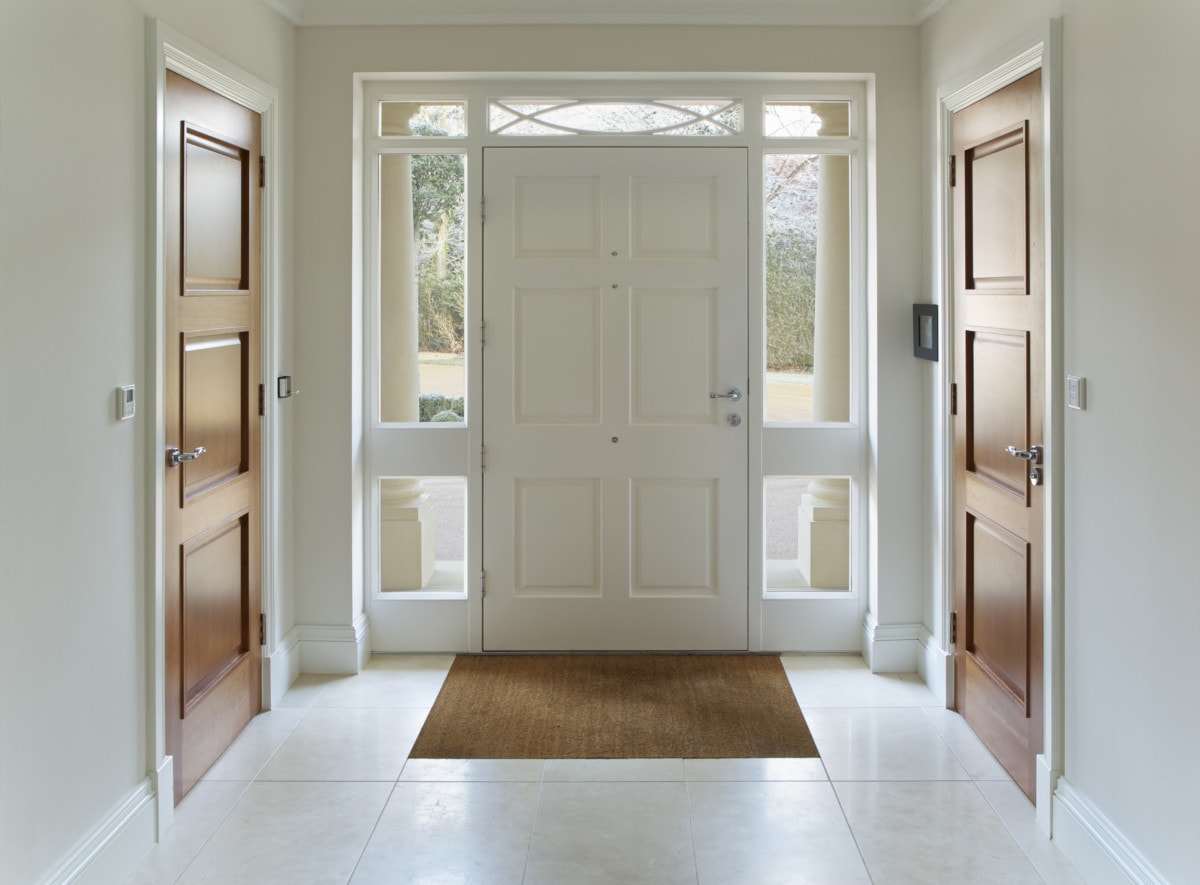
Having issues with your tenant may lead you to want to take some serious action. After all, it’s your property, right? Yes, and also no. While it’s your property, your tenants did sign a lease. They’re technically borrowing your property. It’s theirs for the term of the lease, but there are still rules to follow. The lease should map out specific consequences for certain behaviors, giving you specific scenarios where it’s okay for you to change the locks.
But rather than question if a landlord can change the locks, you might want to get ahead of any possible issues. Know for sure when it’s okay and when it isn’t.
3 reasons a landlord can change the locks on a rental property
There are three main scenarios where a landlord can change a tenant’s locks – when they move out, if they abandon the property, and eviction. However, landlords still need to communicate that they are planning to change the locks in any of these situations.
1. When a tenant moves out
The first scenario where it’s okay for landlords to change locks is at the end of a lease. The day after your tenants have moved out, you’ll likely want to change the locks for security reasons. It’s well within your rights as the landlord to do this. Until new tenants move in, the property is yours.
When tenants return the original set of keys, you can’t be certain they didn’t make copies. To be safe and ensure they no longer have access to the property, you should change the locks.
This isn’t a situation where you’d charge the tenants unless there is a lock policy in the lease. It’s a precaution landlords can opt to take. But if it’s specified that this charge falls back onto the tenant, you should send a copy of the service invoice to them and inform them you’re deducting the cost from their security deposit.
2. When a tenant abandons the property
If a tenant has left without notifying you and taken their keys with them, consider changing the locks for safety reasons. However, you should be transparent and notify the tenant first.
Technically, even if they’re not living in the house, the tenant is still protected by the lease to enter the property. The first question you should ask is whether they plan to return. If so, they can legally access the property until their lease expires. Keep the locks the same and remind the tenant to give the keys back.
If tenants tell their landlords they’re not returning, which means they won’t be giving back their keys, you should notify them of the specific date you’re having the locks changed.
Even if a tenant is unresponsive, you should still wait until the lease is up before taking any action. If that is unsettling, you should reach out a second time and let them know you haven’t heard from them and are changing the locks. Should they want access to the home, you can give them a new key as long as it’s returned.
You also need to communicate to the tenant whether you’re deducting the cost of the lock change from the security deposit. This can most likely only be done if it’s listed as a consequence in the lease of not returning the original keys.
3. When a tenant is evicted
Changing the locks is the last thing a landlord can do during the eviction process. It’s not something you can decide to do without going through the legal process of eviction first.
If there’s a tenant who’s not paying rent or has breached the lease in some other significant way, landlords must get an eviction judgment before even considering changing the locks. From there, the tenant has a certain number of days to appeal the judgment, depending on the state. It’s only after the judgment and the appeal process have expired that you can change the locks.
Every state has its own set of landlord-tenant laws, including the specifics of an eviction procedure. Whether a landlord can change locks legally is a question best answered after consulting your state’s laws. You may also want to talk to an attorney to ensure they’re doing everything right.
Can a tenant change the locks, too?
Rules about changing locks vary, but they include stipulations for both landlords and tenants. Most lease agreements prohibit tenants from changing locks, at least without the landlord’s permission. After all, you need to ensure you get a copy of the new key.
You don’t have to know the specific reason that the tenant wants to change the lock. However, tenants need to give advance notice and a way to get back into the property. You don’t want to get left without access if you need to make a maintenance call or once the tenant moves out.
Landlords can specify the situations where a tenant can change the locks without proper notice. These options are usually more serious situations, such as losing their key, an immediate security risk, or needing to keep an old roommate from entering the property, etc. These scenarios can be listed in the lease.
What to do if a tenant changes the locks without permission
If you’re a landlord and you’ve discovered your tenant changed the locks on your property without notification, the first step is getting access. Ask them for a copy of the new key and remind them that they needed to have asked you first. If they give a new key without any issues, you may decide to resolve the situation there. It can count as one strike, but not a reason for further consequences.
Technically, changing the lock means the house isn’t left in the same condition it was in upon moving in. Even though you have a key, this may give you enough reason to deduct the cost of changing the lock from the tenant’s security deposit.
When a tenant doesn’t give access to the property, that can cause potential problems. If an emergency situation arises, such as a fire or leak, and you can’t access the house, you’re within your rights to call a locksmith or even break down the door. However, you can get into trouble taking this extreme type of action in a non-emergency, so try to avoid things getting to this point.
Sometimes, it’s as easy as explaining why you need access to the rental. You can even include this information in the lease so tenants have it for reference. Examples include scheduled inspections, maintenance requests, and emergencies. Even people who own their own homes usually give another person a spare key, just in case.
The post Can a Landlord Change the Locks on a Rental Property? A Guide for Landlords appeared first on Redfin | Real Estate Tips for Home Buying, Selling & More.
from Redfin | Real Estate Tips for Home Buying, Selling & More https://ift.tt/CZuXP10




No comments:
Post a Comment